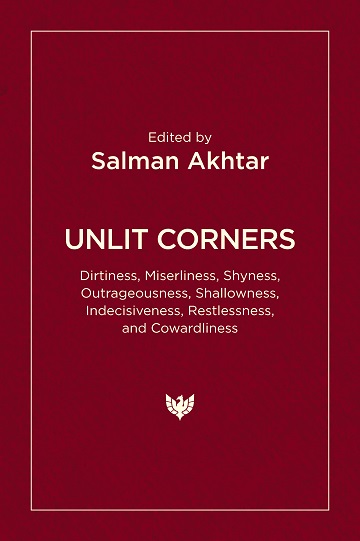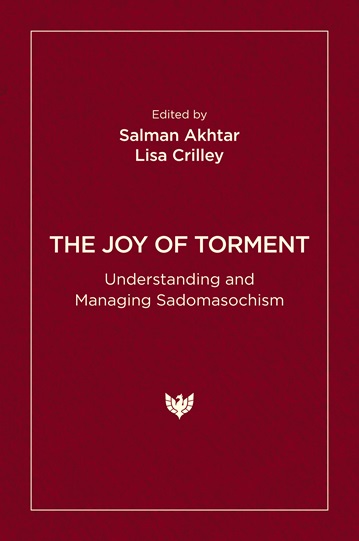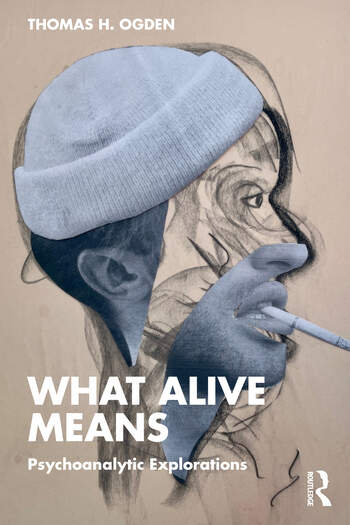The Crescent and the Couch: Cross-Currents Between Islam and Psychoanalysis

Book Details
- Publisher : Jason Aronson
- Published : January 2008
- Cover : Hardback
- Pages : 434
- Category :
Culture and Psychoanalysis - Category 2 :
Psychoanalysis - Catalogue No : 27545
- ISBN 13 : 9780765705747
- ISBN 10 : 0765705745
Also by Salman Akhtar
There are currently no reviews
Be the first to review
Attempting to advance knowledge about Islam and to create the possibility of a dialogue between Islam and psychoanalysis, The Crescent and the Couch brings together a distinguished panel of Muslim and non-Muslim contributors from the fields of history, religion, anthropology, politics, and psychoanalysis. Together these authors highlight the world-changing contributions of prominent Muslim figures, and elucidate the encounter of Islam with Christianity, Judaism, and Hinduism. Moving on to matters of family, individual personality formation, human sexuality, and religious identity, they also address clinical issues that arise in the treatment of Muslim patients as well as the technical work of Muslim psychoanalysts. The book thus becomes a literary ambassador of sorts, bridging the conceptual gap between psychoanalytic theory on the one hand and Islamic conceptualizations of life on the other. It is a work of synthesis at its best and since bringing diverse things together is a task of life instinct, this book can be seen as a robust celebration of life in today's rapidly evolving world.
Reviews and Endorsements
The face of Islam currently visible to the West bears the features of orthodoxy, fundamentalism, the so-called "new anti-Semitism," and political terrorism. Images of inter-ethnic bloodshed in Iraq, bellicose Iranian posturing, Al-Qaeda training camps, and zealot suicide bombers are the basic grammar of such perception. While not entirely untrue, this portrayal of Islam also emanates from the 'villain hunger' of the West, a hunger that has increased since the fall of the USSR. The false equation of 'Muslim' with 'Arab' has also created stereotypes and ambiguities.
The fact is that most Muslims of the world are not Arab and many Arabs are not Muslims. Indeed the people, culture, traditions, and even religious practices of Islam are highly varied and complex. Its belief systems range from the austere Wahabbi rigidity to lyrical Sufi mysticism. Its cultural fabric includes the dark spots of suppression of women on the one hand and breathtakingly beautiful fibers of calligraphy, architecture, rug weaving, and romantic poetry on the other hand.
About the Author
Salman Akhtar, M.D. is professor of psychiatry at Jefferson Medical College, training and supervising analyst at the Psychoanalytic Center of Philadelphia, and a fellow of the American Psychiatric Association and the American College of Psychoanalysts.
About the Editor(s)
Salman Akhtar, MD, is professor of psychiatry at Jefferson Medical College and a training and supervising analyst at the Psychoanalytic Center of Philadelphia. He has served on the editorial boards of the International Journal of Psychoanalysis and the Journal of the American Psychoanalytic Association. His more than 450 publications include twenty-three solo authored books – Broken Structures (1992), Quest for Answers (1995), Inner Torment (1999), Immigration and Identity (1999), New Clinical Realms (2003), Objects of Our Desire (2005), Regarding Others (2007), Turning Points in Dynamic Psychotherapy (2009), The Damaged Core (2009), Comprehensive Dictionary of Psychoanalysis (2009), Immigration and Acculturation (2011), Matters of Life and Death (2011), Psychoanalytic Listening (2013), Good Stuff (2013), Sources of Suffering (2014), No Holds Barred (2016), A Web of Sorrow (2017), Mind, Culture, and Global Unrest (2018), Silent Virtues (2019), Tales of Transformation (2022), In Leaps and Bounds (2022), and In Short (2024) – as well as sixty-nine edited or coedited volumes in psychiatry and psychoanalysis. Dr. Akhtar has delivered many prestigious addresses and lectures including, most significantly, the inaugural address at the first IPA-Asia Congress in Beijing, China (2010). Dr. Akhtar is the recipient of the Journal of the American Psychoanalytic Association’s Best Paper of the Year Award (1995), the Margaret Mahler Literature Prize (1996), the American Society of Psychoanalytic Physicians’ Sigmund Freud Award (2000), the American College of Psychoanalysts’ Laughlin Award (2003), the American Psychoanalytic Association’s Edith Sabshin Award (2000), Columbia University’s Robert Liebert Award for Distinguished Contributions to Applied Psychoanalysis (2004), the American Psychiatric Association’s Kun Po Soo Award (2004), the Irma Bland Award for being the Outstanding Teacher of Psychiatric Residents in the country (2005), and the Nancy Roeske Award (2012). He received the Sigourney Award (2013), which is the most prestigious honor in the field of psychoanalysis. Dr. Akhtar is an internationally sought speaker and teacher, and his books have been translated in many languages, including German, Turkish, and Romanian. His interests are wide and he has served as the film review editor for the International Journal of Psychoanalysis, and is currently serving as the book review editor for the International Journal of Applied Psychoanalytic Studies. He has published eighteen collections of poetry and serves as a scholar-in-residence at the Inter-Act Theatre Company in Philadelphia. His Selected Papers (Vols I–X) were recently published and released at a festive event held at the Freud House & Museum in London.
Customer Reviews
Our customers have not yet reviewed this title. Be the first add your own review for this title.










